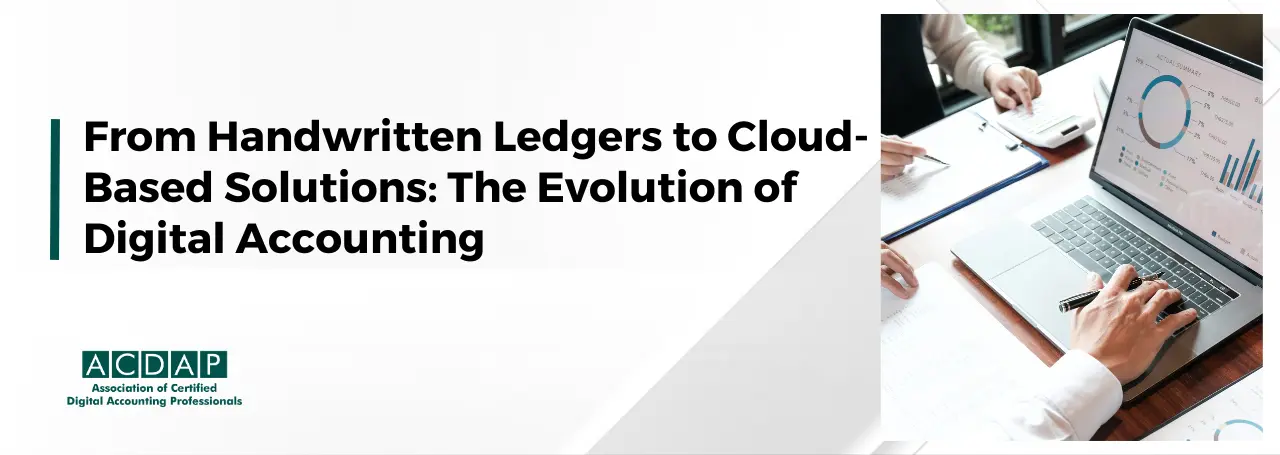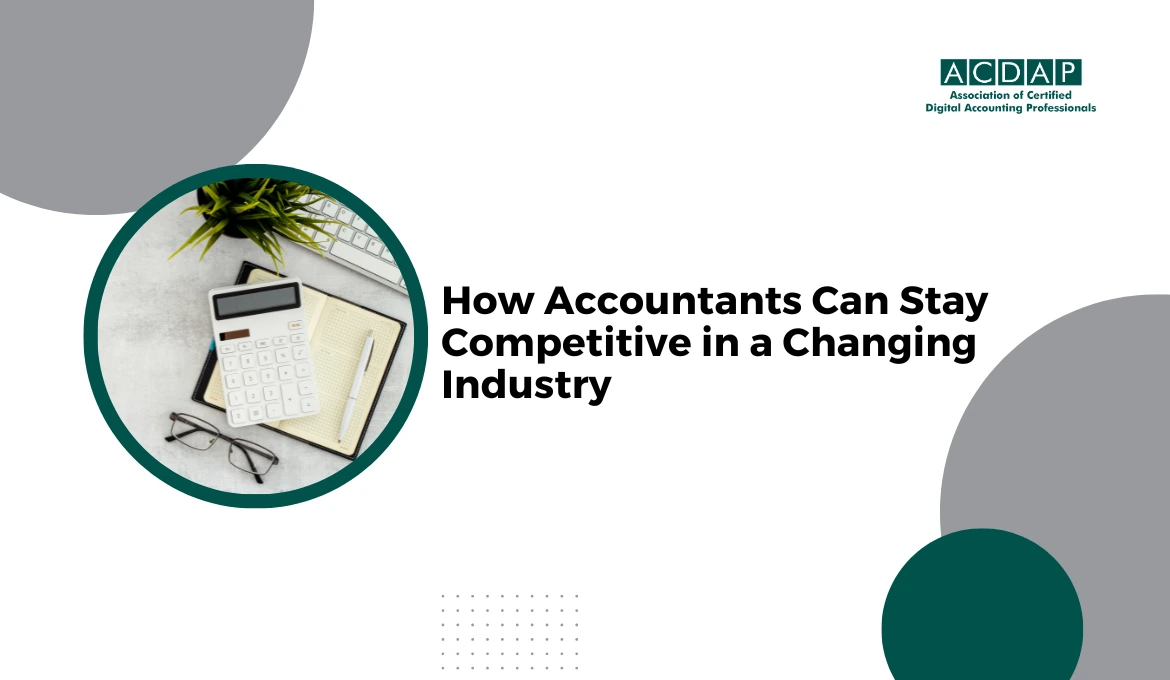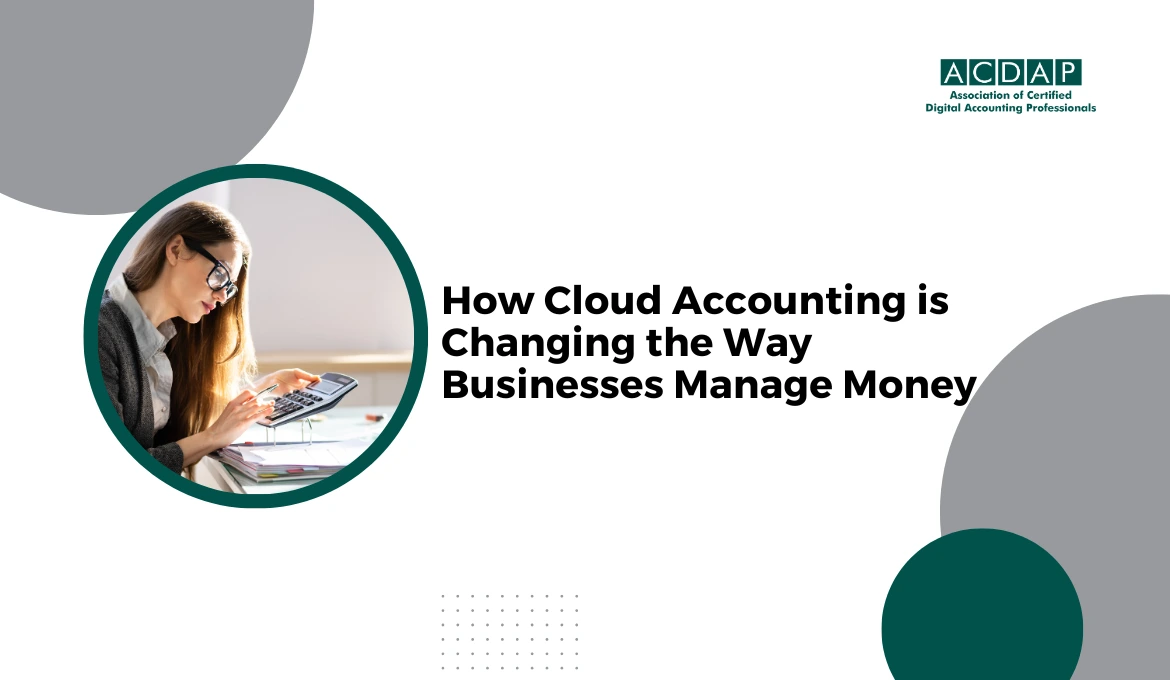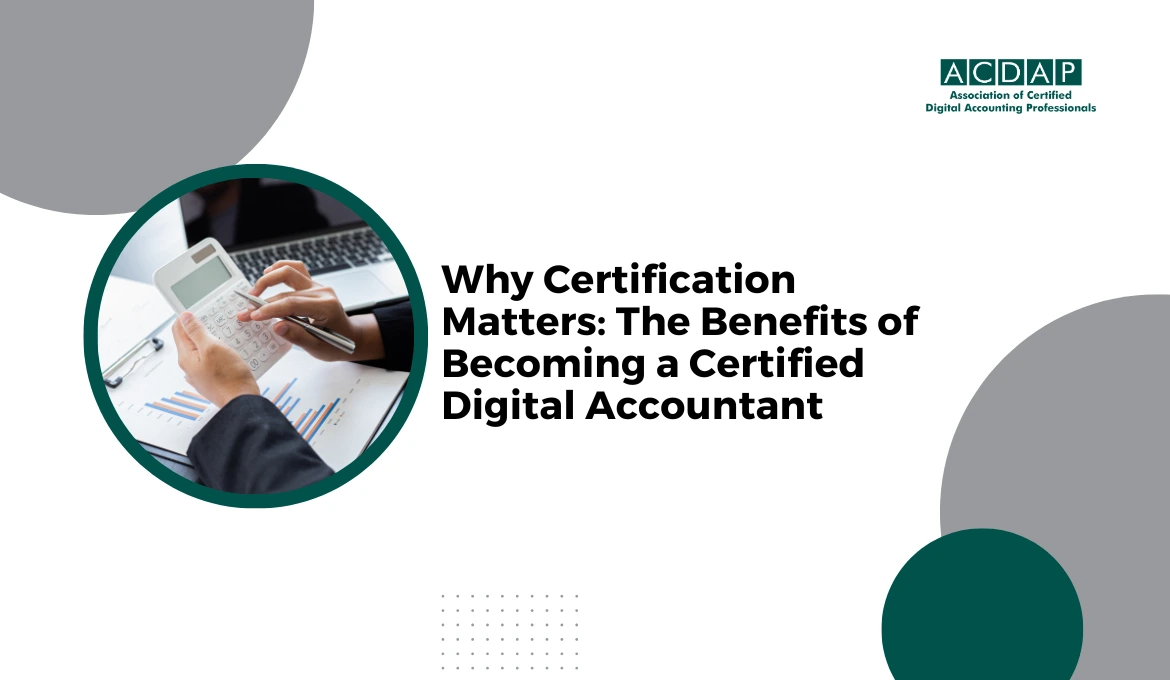In finance and business, the evolution of accounting practices has been nothing short of revolutionary. From the archaic days of handwritten ledgers and manual calculations to the seamless efficiency of cloud-based solutions, the journey of accounting has traversed through remarkable transformations.
In this blog, we will explain the fascinating evolution of digital accounting, tracing its roots, pivotal milestones, and profound impact on businesses worldwide.
The Era of Handwritten Ledgers
In the early days of commerce, accounting was a meticulous and labour-intensive task. Accountants meticulously recorded financial transactions by hand in large ledgers, using ink and paper. These ledgers were the backbone of financial record-keeping, meticulously documenting every debit and credit. However, this manual process was prone to errors, time-consuming, and needed more agility to keep pace with the rapidly evolving business landscape.
The Advent of Spreadsheet Software
The advent of spreadsheet software, notably programmes like Lotus 1-2-3 and Microsoft Excel, revolutionised the accounting profession. These digital tools allowed accountants to automate calculations, create complex financial models, and efficiently organise data. Spreadsheets became the new financial analysis and reporting standard, substantially diminishing the time and effort needed for routine accounting tasks.
Rise of Accounting Software Packages
The demand for more sophisticated accounting solutions surged as businesses grew increasingly complex. This led to developing specialised accounting software packages tailored to meet the diverse needs of companies across various industries. Programmes like QuickBooks, Sage, and MYOB emerged as market leaders, offering double-entry accounting, payroll management, invoicing, and financial reporting features. These software solutions streamlined accounting processes, improved accuracy, and empowered businesses with actionable insights into their financial performance.
Transition to Cloud-Based Accounting
The emergence of cloud computing marked a paradigm shift in the accounting world. Cloud-based accounting solutions, such as Xero, FreshBooks, and QuickBooks Online, surpassed the constraints of conventional desktop-based solutions. By leveraging the power of the cloud, these platforms offered access to financial data anytime and anywhere, seamless collaboration among team members, and enhanced security through encrypted data storage. Furthermore, cloud-based accounting software is integrated with other business applications, enabling seamless data flow across various functions such as inventory management, CRM, and e-commerce.
Benefits of Digital Accounting
The evolution of digital accounting has bestowed upon businesses a plethora of benefits:
- Increased Efficiency: Automation of routine tasks accelerates processes and minimises manual errors, allowing accountants to focus on value-added activities.
- Enhanced Accuracy: Digital accounting software ensures data integrity and accuracy, mitigating the risk of human error inherent in manual record-keeping.
- Improved Decision-Making: Immediate access to financial data empowers business proprietors and managers to make well-informed decisions promptly.
- Cost Savings: Cloud-based solutions eradicate the necessity for costly hardware infrastructure and maintenance, thereby diminishing IT expenses for businesses.
- Scalability: Digital accounting solutions can scale with the growth of the business, accommodating increased transaction volumes and complexity seamlessly.
The Future of Digital Accounting
In a swiftly evolving technological landscape, the future of digital accounting is teeming with promise. Cutting-edge advancements like artificial intelligence, machine learning, and blockchain are on the verge of transforming accounting practices. AI-powered algorithms offer the potential to automate tasks like data entry, categorisation, and analysis, while blockchain technology guarantees unparalleled transparency and security in financial transactions.
Ensuring Cybersecurity in Digital Accounting
Cybersecurity becomes paramount as businesses increasingly depend on digital platforms for accounting tasks. Protecting sensitive financial data from cyber threats, such as data breaches and ransomware attacks, is essential for companies. Implementing robust cybersecurity measures, including encryption, multi-factor authentication, and regular security audits, helps safeguard financial information and maintain trust with clients and stakeholders.
Embracing Sustainability in Accounting Practices
In the current environmentally conscious environment, accounting firms progressively embrace sustainable practices to minimise their carbon footprint. Digital accounting solutions promote sustainability by minimising paper usage, reducing energy consumption, and enabling remote work opportunities. By embracing eco-friendly accounting practices, businesses can contribute to environmental preservation while improving operational efficiency and cost-effectiveness.
Leveraging Data Analytics for Strategic Insights
In the era of digital accounting, data analytics emerges as a powerful tool for gaining strategic insights into business performance. By harnessing the wealth of financial data generated by digital accounting systems, businesses can identify trends, forecast future outcomes, and optimise decision-making processes. Sophisticated analytics methods, including predictive modelling and trend analysis, empower companies to stay ahead of the curve and capitalise on competitive advantages in dynamic market environments.


























